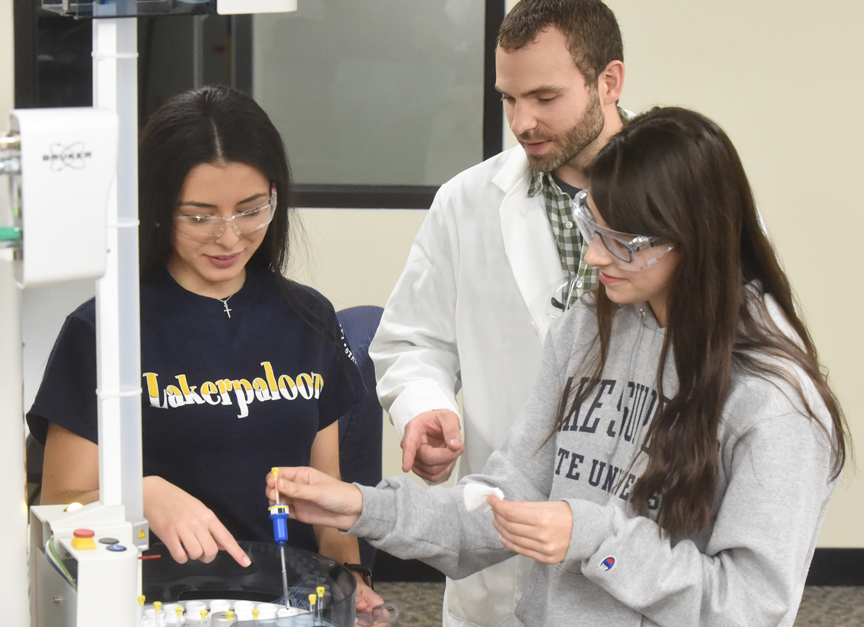The cannabis market is set to create more than 500,000 jobs by 2022, outpacing other industries like healthcare and technology. Boasting 22% projected job growth, and average starting salaries for cannabis chemists of $72,000, this emerging industry requires the best of the best.
“LSSU’s core mission is to equip graduates with knowledge and practical skills for meaningful employment so that they can enhance not only the quality of life in Michigan, but throughout North America as well,” said LSSU President Dr. Rodney Hanley. “Our cannabis chemistry graduates will lead the cannabis agricultural and pharmaceutical sectors by developing standards for production, regulation, and safety, just as chemists develop and qualify processes and products that form the backbone of any modern society.”
An LSSU cannabis chemistry degree goes beyond just meeting an expanding market demand in cannabis. The program incorporates a solid foundation in organic chemistry, instrumental analysis, and biochemistry. Graduates will gain skills – often to develop new techniques – that set benchmarks for cannabis production, and quality control, including safety and testing.
“Laboratory chemists develop and implement techniques using highly sensitive tests to detect and measure specific chemical compounds that are critical to law enforcement, regulatory affairs, and to ensure the public’s health and safety,” said Barbara Keller, professor and past chair of the School of Science and Medicine.
LSSU brings to bear a solid track record in training analytical chemists who have gone on to careers in industry, government, and academics. Chemistry grads enjoy placement in public and private-sector jobs or admission into graduate school within one year of graduation.
There is a burgeoning demand for highly skilled scientific professionals in the cannabis space, especially in the fields of research and clinical trials, product development and manufacturing, analytical testing, quality control, and regulation.Julia Bramante
Cannabis Chemistry Subdivision Chair, American Chemical Society
The cannabis chemistry degree devotes 14 credits of specialized cannabis coursework, starting in the first year, on top of all the other coursework a conventional analytical chemistry degree provides. At the degree’s core are 50 credits of chemistry content, along with courses in fundamental biology and horticulture. The degree also offers 24 free electives that lets students focus on other areas such as business, marketing, and criminal justice.
Learn more about this unique program.
About the Author
 John Shibley
John ShibleyPhotographer/Staff Writer
Shibley has been a writer, editor, photographer, and videographer in the public relations office since 1991, except for a five-year stint as hobby and planetary science editor at Astronomy magazine in the mid-90s, where he was a finalist for the American Astronomical Society’s Jonathan Eberhart Planetary Sciences Journalism Award.

